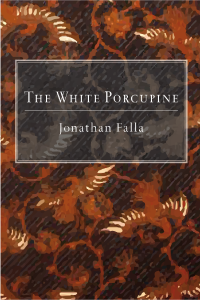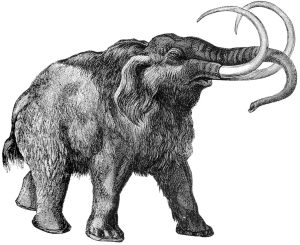New books and re-issues from Stupor Mundi
(November 2017)
The small Scottish literary press Stupor Mundi now publishes a number of my books, including some reprints of earlier work that had become unavailable, or collections gathered together for the first time.
Literary publishers don’t last forever. Two Ravens Press, based up in Ullapool and then on Lewis, published my third novel Glenfarron but then sold the name and business without telling me or their other authors. The imprint seems to have evaporated altogether, so I’m delighted to have the novel re-issued through Stupor Mundi.
SM had already issued a collection of my short stories – The Morena & Other Stories, and there is now Terraferma & Other Stories. These both contain tales that have won a prize or two and have been broadcast by the BBC, but they would die a forgotten death unless gathered together.
There’s also a collection of non-fiction essays – Beyond The Roadblocks – which includes amongst many other things the historical fiction essay introduced on the ‘Essays & Background’ page here.
All this is only possible in the new world of e-books and ‘print on demand’ paperbacks.
***
The White Porcupine
A novel for 2015
This project is something I’ve been working on in different formats for about 25 years.
The White Porcupine has some base in historical reality. It concerns the Dutch East Indies and the struggle for independence in the late 1940s. Part of the story is the Battle of Surabaya, a bizarre fight in late 1945 which cost many thousands of lives. It was between British forces and Indonesian nationalists and they were really fighting over nothing at all, just a misunderstanding. This was the last time Imperial (Indian) troops fought for the British.
Another historical aspect is the career of a Dutch soldier who decided that what his countrymen were doing in Indonesia was wrong, and who switched sides. He lived in Java for the rest of his life (dying just a few years ago), regarded by many in the Netherlands as a despicable traitor.
I hope you’ll find the story funny and exciting, but also thought-provoking on the subject of identity and loyalty, and what it means to be a traitor.
The book uses a quote from a 12th century monk, Hugo of St Victor:
“The person who finds his homeland sweet is but a tender beginner; he to whom every land is sweet is already strong; but he is perfect to whom the entire world is a foreign place.”
See the ‘Books’ page for full details. Here’s the cover:
The book is available in two editions: as an e-book from the usual sites, and also as an attractive limited hardback edition, signed and numbered. Yours for £12 plus a bit of p&p. Get in touch!
*
TELEREAD INTERVIEW ON THE SCOTTISH INDEPENDENCE DEBATE
The Society of Authors in Scotland (SoAiS) is our branch of the venerable Society of Authors in London. I was until recently the current Scottish treasurer. We sponsored a debate on the outlook for writers in a post-referendum Scotland.
We were also approached by Paul St John Mackintosh of Teleread, an established blog on publishing matters, wanting our views on the issue. I contributed my personal notions which you can find on: http://www.teleread.com
*
St Andrews Creative Writing Summer School
I’ve now been Director of the Creative Writing Summer School at St Andrews University for nine years
Every summer we take twenty carefully selected students for around cthree weeks. They’re all talented, but they are also new to certain forms. We work in a variety of media: this year they worked in small teams to write short “radio plays” (actually performed live through a PA with sound effects), as well as individual fiction, poetry, comedy writing, and performance skills.
As a new departure, we had them design poem-prints which we then took to the print workshops of Dundee Contemporary Arts where they learned the delights of screen printing – something none of the students had done before. In linking the written word to the visual, they’re looking back to William Blake, the illuminated manuscript, and to the very origins of the written word in pictograms and hieroglyphs.
We expect a lot of our students and work them hard, but it’s a fascinating month. If you’re interested in applying for next summer, keep an eye on the University of St Andrews website. Applications are now open. The course has been so successful that we shall be expanding it a little next year – but only a little. The personal contact is central, and we work in ‘tutor groups’ of just four or five.
Published Spring 2014
Hall in the Heart
A Fife parish hall and its Community
1914-2014
A new departure for me: social history. My local parish hall committee found a small grant to commission me to write a history of the hall for its centenary. Researching this could have been parochial and piddling, but turned out to be a revelation for me, overturning all sorts of assumptions about rural society in 20th century Scotland. That (above) is some of the village schoolchildren, in 1895. The story includes anarchist bomb plots, fornicators denounced, and a subtle tussle for authority between the Establishment and the common folk.
See the Books: non-fiction page for details
***
ACES ARTS & CONFLICT
Throughout much of 2013 and early 2014 I’ve been involved in an arts residency for ACES – the Aberdeen Centre for Environmental Sustainability. The project looks at environmental conflicts and explores how creative artists might… well, not solve any problem, but illuminate it a little. There were more than a dozen of us: a musician, sculptor, photographer, theatre director, artist, film maker and me, together with a clutch of scientists engaged in the hard realities of such conflicts. We had an expert on hen harriers, another expert on the problems of elephants trampling crops, another on urban water spaces… We did a great deal of talking, quite a lot of walking (& drinking and eating), and I hope some listening too. What comes out of such a process? In the short term, there was an exhibition in Aberdeen. On show there were delicate drawings of tiny beasts that suffer the collateral damage of environmental change; and film, steel harriers, a fantasy of mammoths in Braemar, a meditation on Victorian shooting parties, and more. There’s plenty of information about the project on the ACES Aberdeen website. For myself, the long term outcome will, I hope, be a new novel, focussed on the bitter tensions triggered in a community by an energy generation scheme. It will be a slow process to digest the complexities we uncovered – but it is not our job to produce answers. ‘Negative capability’ is what Keats called it: the need – and the capacity – of artists to work in an ‘unresolved’ world.
***
Published Spring 2013
The Physician of Sanlúcar
from
Aurora Metro Books (London)
“JONATHAN FALLA’S PATAGONIA-SET NOVEL IS JOYOUSLY ACCOMPLISHED.”
(The Scotsman – see ‘Reviews’)
My first new novel for five years, Sanlúcar
is typical Falla territory, an everyday tale of heroin, gold, and early aviation in Patagonia circa 1910. It’s based on an idea I had 25 years ago and jotted down in a little Venetian notebook covered in marbled paper. It’s taken me until now to get round to publishing it, but thanks to a Creative Scotland award I was able to take time out to write uninterrupted. Please – give it a look.
***
FESTIVAL OF HISTORICAL FICTION
Edinburgh April 2013
Another festival to add to the crowded roster in Edinburgh – a weekend on historical fiction, held at the splendid new arts venue at Summerhall, the old ‘Dick Vet’ veterinary school near the centre of town. The rooms still feature the gas taps, handy for quelling tedious speakers. I gave a talk on ‘The Moral Agenda’ in historical fiction, considering the different uses and attitudes towards historical writing to be found in authors from Tolstoy and Pasternak to Rushdie and Peter Carey. I’ll post the essay in the ‘Essays & Background’ pages here.
__________
E-BOOKS : I now have had several e-books…
Blue Poppies, Poor Mercy and Glenfarron are all now available from their original publishers as e-editions from Amazon and elsewhere. Topokana Martyrs Day was the play that began my professional writing career back in 1983. At the prompting of a colleague now teaching at Brandeis University, who needed an edition for teaching, the play is now available as a Stupor Mundi e-book from Amazon. The Morena is a collection of twenty years of short story writing. Many of these have been published in magazines or read on the radio, but have not been collected elsewhere. These also can now be had as a Stupor Mundi paperback or e-book from Amazon.



Some of the finest books I’ve read in a long time have been written by Jonathan Falla. A superb author who deserves a lot more publicity than he currently receives. My local bookshop is now stocking his books after months of pestering by me. Keep your novels coming!
Thank you, Michael – I really appreciate that; one very rarely hears back from readers.
Yes, there are new books coming. One is due out in a couple of months (The White Porcupine). One is with editors just now, and I’m about half way through a third. They’re like Boeings at Heathrow, stacked for landing…
Congratulations on all these new and varied works!!!
Thank you, my dear – It’s called bet-spreading, I think! (Best regards to Acadia).
J.
PUBLISHING NEWS:
My novel POOR MERCY will be launched in electronic format on Amazon’s Kindle as of May 12th. A new departure for me, this.